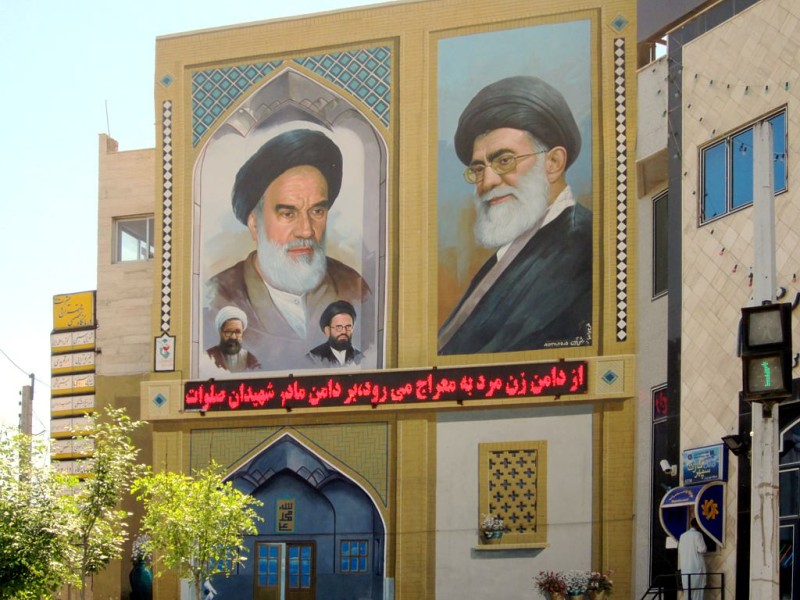
“We hear the pleas of the Iranian people and we commend them for their bravery and resilience,” Minister of Foreign Affairs Mélanie Joly recently said of the protests taking place in Iran since September. “Canada will not stop advocating for Iranians and their human rights.”
That advocacy takes peculiar forms.
At present, Canada has sanctioned 139 Iranian individuals and 189 Iranian entities. That the sanctions do not explicitly target the Iranian masses is irrelevant. An academic paper published in December 2017 finds that:
The sanctions on Iran caused a fall of country’s revenues, devaluation of national currency, and increase of inflation and unemployment. These all resulted in deterioration of people’s overall welfare and lowering their ability to access the necessities of a standard life such as nutritious food, health care and medicine. Also, the sanctions on banking, financial system and shipment led to scarcity of quality lifesaving medicines. The impacts of sanctions were more immense on the lives of the poor, patients, women and children. Humanitarian exemptions did not protect Iranians from the adverse effects of sanctions.
When a country’s most powerful politicians and companies are sanctioned, investors avoid that country because they see too many legal hurdles, fear inadvertently violating the sanctions, or worry that, even if their operations are not presently violating sanctions, new sanctions may target them. That leads to “overcompliance” with the sanctions, the avoiding of doing business in countries targeted by sanctions. Last year, UN human rights expert Alena Douhan visited Iran and found that the compliance and overcompliance by risk-averse businesses and financial institutions have worsened humanitarian conditions in the country and are especially hard on vulnerable segments of the Iranian population. She said that she is:
[G]ravely concerned about the life-threating consequences of the high costs and in certain cases complete absence of specialised medicines and medical equipment due to sanctions-induced trade and financial restrictions, as well as due to reported foreign companies’ reluctance to supply these goods for fear of consequences, including possible criminal prosecution and financial penalties….
Sanctions imposed on Iran’s key economic sectors, and designation of its financial institutions, along with numerous national companies has led to severe drop of State revenues, inflation, growing poverty rates, and scarcity of resources to guarantee the basic needs of those most in need.
Douhan went on to note that the sanctions, and overcompliance with them, damage Iran’s infrastructure and “social support programmes in the context of rising prices and unemployment rates, including in support of the growing population of Afghan refugees,” while also hindering industrial development, “environmental security… and humanitarian provisions.”
Douhan’s report was issued in May 2022. Canada has imposed nine sanctions packages on Iran since October 2022. Canada isn’t “advocating for Iranians and their human rights.” It’s violating those rights.
The sanctions shouldn’t be merely seen as contradicting Canada’s stated goal of helping the Iranian people. Rather, the unilateral coercive measures, as sanctions are sometimes called, are perfectly consistent with Canada’s broader policy of hostility against Iran.
In 2012, the Harper government closed Canada’s embassy in Iran, expelled Iranian diplomats in Canada, and severed diplomatic ties with the country. Prior to Justin Trudeau’s election as Prime Minister in 2015, he promised to re-establish relations between the two countries but has not followed through. Trudeau’s government has, however, sold weapons to Iran’s long-time rivals Saudi Arabia and Israel, the latter of which has repeatedly attacked Iran militarily.
Moreover, a cross-section of the Canadian ruling class appear at Mojahedin-e-Khalq (MEK) events, including Conservatives Stephen Harper and John Baird, Liberal Irwin Cotler, and assorted MPs from both parties. The MEK is a cultish group that has carried out armed attacks against Iranian civilians and helped Iraq during its US-backed invasion of Iran in the 1980s. Former cabinet ministers David Kilgour and Tony Clement have explicitly supported the MEK.
That Canada knowingly adopts policies that inflict pain on the Iranian population demonstrates that Canada’s Iran policies are not determined by concern for Iranians’ well-being. The policies, rather, are guided by the Canada’s position as an important node in the US-leg capitalist empire, which sees Iran as a barrier to its interests. For example, an analysis written by Global Affairs Canada and obtained by The Breach says that one crucial reason Canada supports Saudi Arabia is that it “has been the main regional bulwark against attempts by Iran to expand its influence in the region, through proxies in Syria, Lebanon, Iraq, and Yemen….Israel considers Iran considers Iran as an existential threat to its prosperity and security.” Setting aside the possibility that the recent Saudi-Iranian détente might limit the degree to which the Saudis function as such a “bulwark,” the Global Affairs document suggests that Canada objects to Iranian support for all the major regional forces that the US and its allies have not been fully able to bring to heel: the Syrian government; Hezbollah; Iraqi groups opposed to the US presence in their country; the Houthis in Yemen; the Palestinian resistance forces.
The Canadian ruling class’ orientation toward Iran, and Canada’s support for rights-violating states in the region such as Saudi Arabia and Israel, give lie to the idea that Canadian government policy is shaped by concern for “Iranians and their human rights.” This record also indicates that those of us who are rooting for the forces of anti-imperialism and working-class power in Iran need to demand that the Canadian state stop interfering in Iran. Imperialist machinations against the country, including but not limited to immiserating its citizens through sanctions, severely hinders the Iranian peoples’ capacity to exercise their inherent right to determine their own future. Iranians must instead be permitted to resolve their own social conflicts free of external interference.